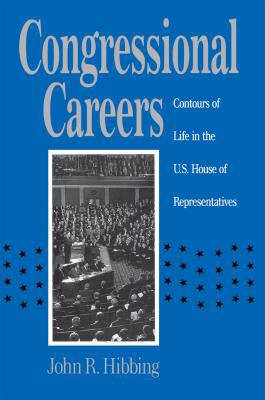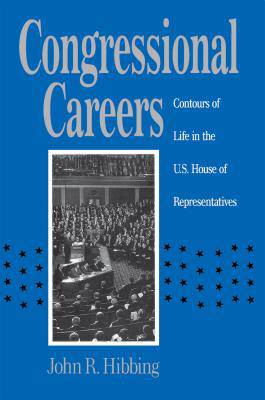
- Afhalen na 1 uur in een winkel met voorraad
- In januari gratis thuislevering in België
- Ruim aanbod met 7 miljoen producten
- Afhalen na 1 uur in een winkel met voorraad
- In januari gratis thuislevering in België
- Ruim aanbod met 7 miljoen producten
Congressional Careers
Contours of Life in the U.S. House of Representatives
John R HibbingOmschrijving
According to a Gallup poll, 70 percent of Americans want elected officials to serve only a limited number of terms. Nevertheless, every two years American voters return, on average, more than 95 percent of incumbents to the U.S. House of Representatives. John Hibbing's book provides unique evidence of the problems that would result from congressional term limitations.
The first scholar to analyze congressional careers using longitudinal data, Hibbing looks at how the career patterns of a typical House member have evolved over the last forty years. By showing that the gap between the legislative contributions of junior and senior members has grown in recent years, Hibbing contends that as members gain in seniority they become more knowledgeable, efficient, and valuable legislators. Thus he argues against congressional term limitations.
Hibbing's findings illuminate other fundamental and surprising changes. House members now are as electorally secure early in their careers as they are late, and they are less likely to deviate from their previously established roll call voting pattern. Members acquire positions of authority (subcommittee chairs) more quickly than they used to, but these more rapid gains evaporate by the sixth or seventh term of service. Also, House members travel to their home districts less frequently than they did ten years ago.
Congressional Careers is a fascinating portrait of the evolution of American legislators during their congressional service. It is the only study of congressional behavior that is both comprehensive and longitudinal -- valuable features in an era when congressional careerism is coming under acute public scrutiny.
Specificaties
Betrokkenen
- Auteur(s):
- Uitgeverij:
Inhoud
- Aantal bladzijden:
- 230
- Taal:
- Engels
Eigenschappen
- Productcode (EAN):
- 9780807843406
- Verschijningsdatum:
- 1/09/1991
- Uitvoering:
- Paperback
- Formaat:
- Trade paperback (VS)
- Afmetingen:
- 150 mm x 230 mm
- Gewicht:
- 349 g

Alleen bij Standaard Boekhandel
Beoordelingen
We publiceren alleen reviews die voldoen aan de voorwaarden voor reviews. Bekijk onze voorwaarden voor reviews.









